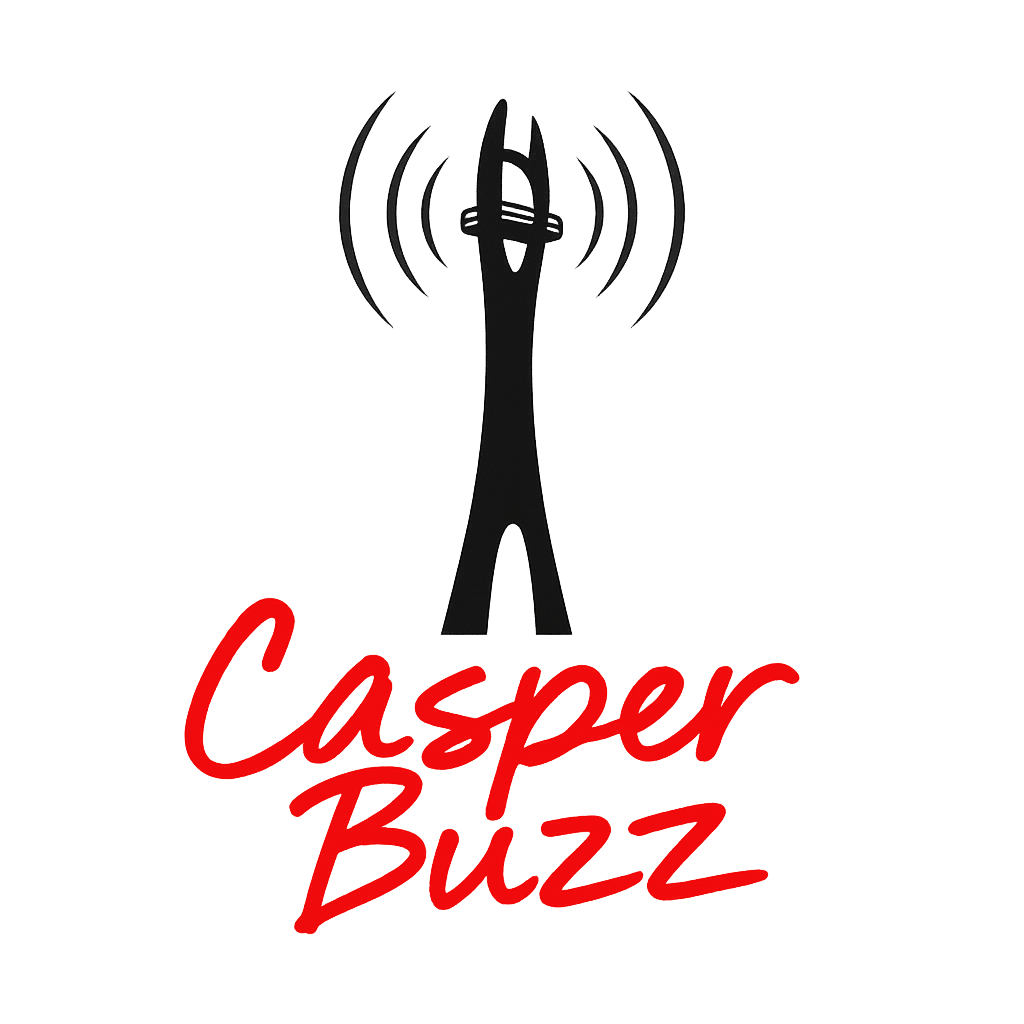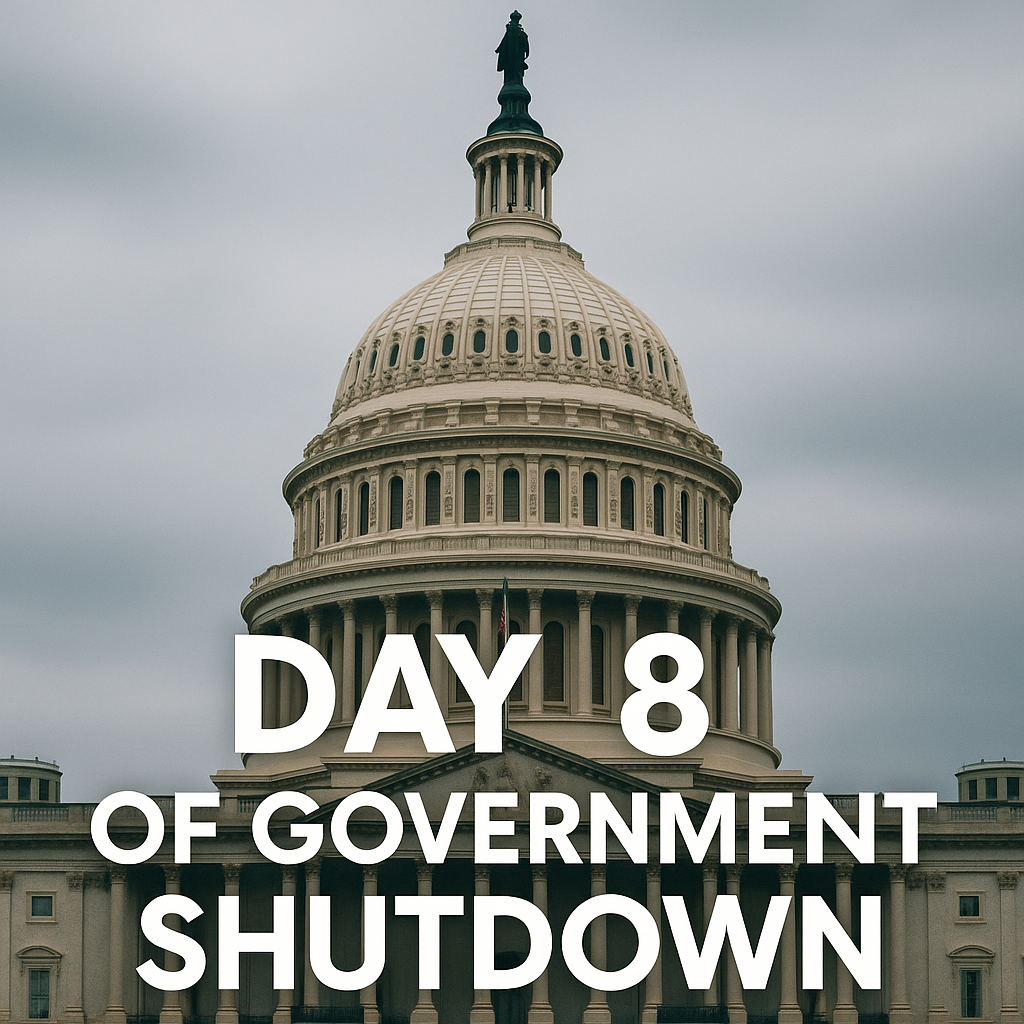Day 8 of Federal Government Shutdown: Stalemate Continues Amid Rising Tensions
Casper Buzz
Archives
Day 8 of Federal Government Shutdown: Stalemate Continues Amid Rising Tensions
SIGN UP FOR OUR NEWSLETTER
Day 8 of Federal Government Shutdown: Stalemate Continues Amid Rising Tensions |
Partisan Deadlock Over Healthcare Subsidies and Budget Cuts Leaves Federal Employees and Services in Limbo |
As the federal government shutdown enters its eighth day, the impasse between Republicans and Democrats shows no signs of resolution.
House Speaker Mike Johnson (R-LA) maintains that the House has fulfilled its duty by passing a short-term funding bill on September 19, placing the onus on the Senate to act.
"The House is done," Johnson stated. "The ball is now in the Senate’s court. It does us no good to be here dithering on show votes. We did it. We sent the product over. It is clean. It is 24 pages in length. It’s the most bare minimum that’s necessary to keep the lights on for the people."
Conversely, House Minority Leader Hakeem Jeffries (D-NY) criticizes the lack of communication from Republican leaders since a meeting with President Trump last week.
"Donald Trump and House Republican leadership, along with Senate Republican leadership, have basically gone radio silent since the Oval Office meeting that took place on Monday of last week," Jeffries remarked. "As Democrats, we continue to make clear we’ll sit down any time, any place, with anyone to reopen the government, to enact a spending agreement that actually improves the quality of life of the American people."
The primary sticking point remains the extension of Affordable Care Act tax credits, set to expire at the end of the year.
Jeffries emphasizes the necessity of a permanent solution, stating, "The least that we can do is make sure that we provide certainty to working class Americans, middle class Americans, and everyday Americans, making sure that their premiums, co-pays and deductibles, which are about to double, triple or even quadruple for some, actually doesn’t take place this year and next year and into the future."
In the meantime, the shutdown's repercussions are becoming increasingly evident.
The Internal Revenue Service (IRS) announced plans to furlough over 34,000 employees, nearly 46% of its workforce, effectively suspending taxpayer assistance services.
While employees working on implementing the tax and spending law signed by President Trump in July will remain active, the furlough decision aligns with a prior warning from the IRS stating that staff would be sent home if the shutdown exceeded five business days.
Adding to the uncertainty, the Trump administration has proposed a policy shift that would deny automatic retroactive pay to furloughed federal employees, contradicting a 2019 law that mandates back pay following shutdowns.
This stance has sparked bipartisan concern and introduced further uncertainty for the approximately 700,000 employees affected.
The aviation sector is also feeling the strain.
Major airlines are bracing for a third consecutive day of widespread flight delays due to a growing shortage of air traffic controllers.
Nearly 10,000 flights were delayed over the past two days, with staffing shortages striking facilities nationwide.
Unlike the 2019 shutdown, current absenteeism among controllers is occurring earlier in the process, intensifying the impact on U.S. air travel.
About 13,000 air traffic controllers and 50,000 TSA officers are required to work without pay, contributing to operational stress and low morale.
Some areas have seen air traffic controller staffing reduced by up to 50%, as reported by Transportation Secretary Sean Duffy.
At Baltimore-Washington International Airport, Maryland Governor Wes Moore and congressional Democrats urged an end to the shutdown and proposed legislation to ensure controllers receive pay during such crises.
They warned of growing public anxiety about air travel, recalling the 2019 shutdown when similar issues disrupted passenger throughput and forced legislative action.
As the shutdown persists, the ripple effects are being felt across various sectors, from federal employees facing financial uncertainty to travelers experiencing delays and disruptions.
The deadlock over healthcare subsidies and budget cuts continues to leave the nation in a state of limbo, with no clear resolution in sight. |

